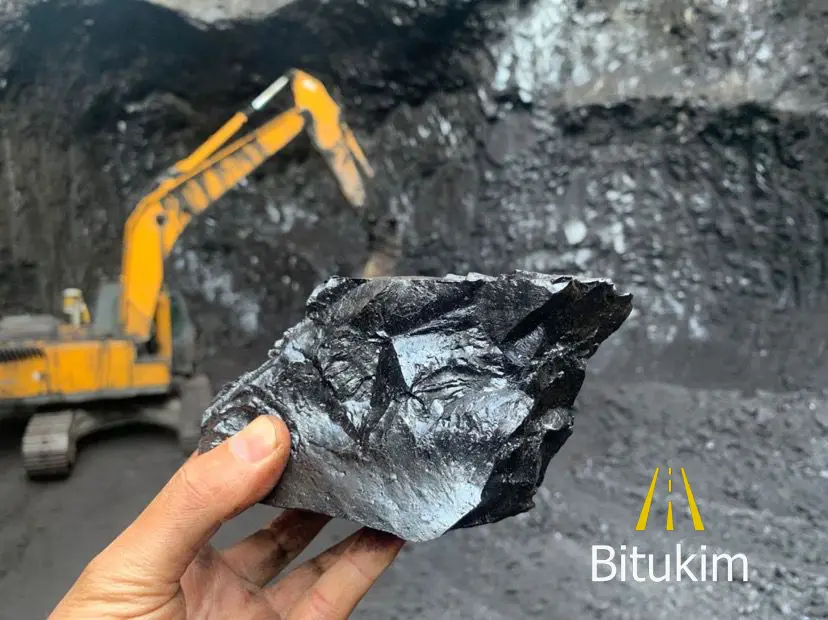
Gilsonite additive in drilling fluids for shale, Gilsonite is widely used as an additive in drilling fluids to effectively manage the challenges of drilling through shale formations. Shale is known for its tendency to swell, slough, and disintegrate upon exposure to drilling fluids, particularly water-based ones. By incorporating Gilsonite into drilling muds, these issues can be mitigated, enhancing overall drilling performance and wellbore stability.
Benefits of Using Gilsonite as an Additive in Drilling Fluids for Shale:
- Sealing and Plugging Shale Pores:
- Formation of a Protective Layer: Gilsonite forms a thin, impermeable film on the wellbore walls that seals micro-fractures and pores in the shale. This barrier prevents drilling fluids from penetrating the formation, reducing fluid invasion and maintaining shale stability.
- Controlling Fluid Loss:
- Reduced Filtrate Invasion: By plugging the pore spaces and micro-fractures, Gilsonite acts as a lost circulation material (LCM), minimizing the loss of drilling fluids into the shale formation. This control is crucial for maintaining pressure balance and preventing excessive fluid loss, which can weaken the formation.
- Inhibition of Shale Swelling:
- Mitigating Water Sensitivity: Shales often contain clay minerals (such as smectite) that swell upon exposure to water. Gilsonite’s sealing properties reduce the contact between these clays and water-based drilling fluids, minimizing swelling and maintaining wellbore integrity.
- Improving Wellbore Stability:
- Stabilizing the Shale Formation: By preventing fluid invasion, reducing shale hydration, and minimizing mechanical degradation, Gilsonite helps maintain a stable wellbore. This reduces the risk of issues such as shale sloughing, where pieces of shale break off into the wellbore, causing blockages and operational problems.
- Enhancing Lubricity:
- Reduced Friction and Torque: Gilsonite provides natural lubricating properties that reduce friction between the drill string and the wellbore. This lubrication lowers torque and drag, leading to smoother drilling operations and less wear on drilling equipment.
- Maintaining Drilling Fluid Properties:
- Improved Rheology and Filtration Control: Gilsonite enhances the rheological properties of drilling fluids, such as viscosity and yield point, improving their ability to carry cuttings and manage fluid loss. This ensures efficient drilling and better control of mud properties.
- Thermal Stability:
- Suitable for High-Temperature Wells: Gilsonite remains stable at high temperatures, making it effective in deep or high-temperature wells where other additives may degrade. Its thermal stability ensures consistent performance even in challenging drilling environments.
- Compatibility with Different Mud Systems:
- Versatility: Gilsonite can be used in both water-based muds (WBMs) and oil-based muds (OBMs), offering flexibility for various drilling conditions. In WBMs, it provides additional protection against water invasion, while in OBMs, it enhances sealing and fluid loss control.
- Reduced Shale Disintegration:
- Prevention of Shale Breakup: By stabilizing the shale formation and preventing fluid invasion, Gilsonite minimizes the risk of shale disintegration, where the formation breaks apart and collapses into the wellbore. This contributes to more efficient drilling and fewer operational interruptions.
- Environmental Benefits:
- Natural and Eco-Friendly: Gilsonite is a naturally occurring, non-toxic hydrocarbon resin, making it an environmentally friendly additive for drilling fluids compared to synthetic chemicals that may have adverse effects.
Applications:
- Reactive and Unstable Shales: Gilsonite is particularly effective in formations that contain reactive or unstable shales prone to swelling, sloughing, or disintegration.
- High-Pressure, High-Temperature Wells: Its thermal stability makes it suitable for HPHT wells, where maintaining wellbore stability is critical.
- Extended-Reach and Horizontal Wells: In complex well geometries, such as extended-reach or horizontal wells, Gilsonite’s lubricating properties help reduce friction and prevent wellbore instability.
Summary:
Using Gilsonite as an additive in drilling fluids for shale offers numerous advantages, including sealing micro-fractures, controlling fluid loss, inhibiting swelling, enhancing wellbore stability, and improving lubricity. Its versatility, thermal stability, and eco-friendly nature make it an ideal solution for managing the complexities associated with drilling through shale formations, ensuring smoother, safer, and more efficient drilling operations.

